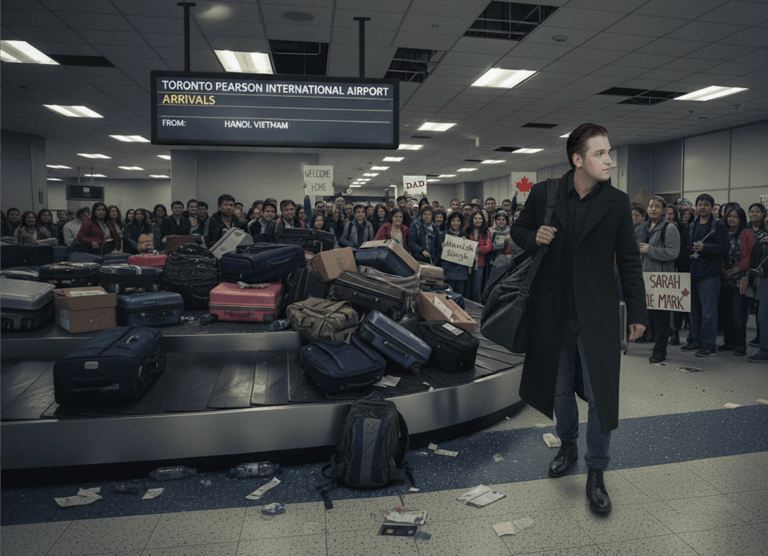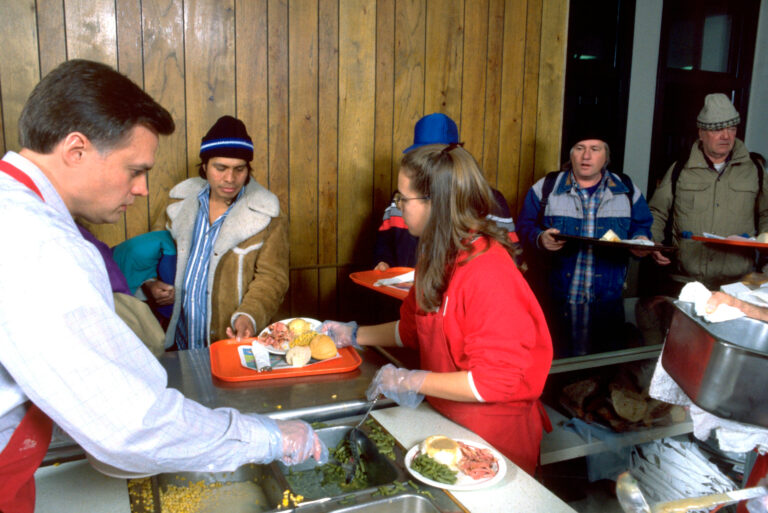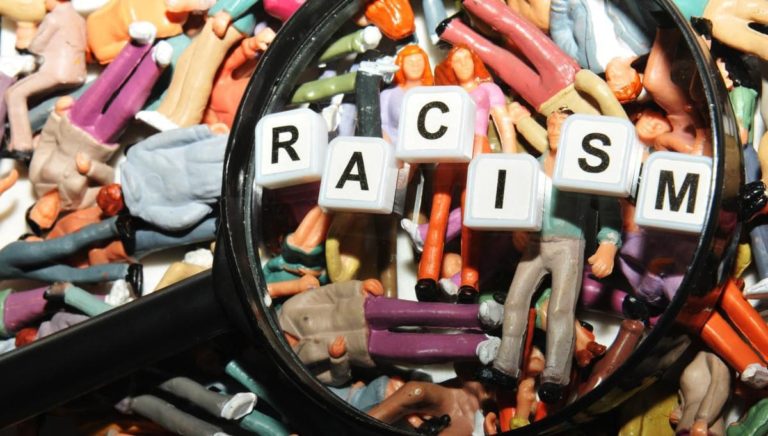I don’t remember much about second grade but I do remember Mrs. Burkett. She was kind and patient and I adored her. As for her lessons, I only remember one. That’s because it kept me up at night. She taught us that the Amazon rainforest was being cut down by greedy capitalists who cared more about making money than frogs and monkeys. Even more frightening, we were told the rainforest was the world’s lungs and, without it, the whole planet would heat up and the boreal forests near our home in northern Ontario would burn. I stayed up late one night with my mother baking cookies to sell in the school gym. Our eco-activist fundraiser scored only enough cash to “buy” and protect a measly few square kilometres of rainforest. I was seven and the world felt doomed.
Mrs. Burkett was correct that the Amazon was under pressure and the world was warming. But a quarter century later, it’s clear she went a bit overboard. Yes, scientists generally agree that temperatures are rising and most of the increase is driven by greenhouse gases generated by human activity. But the boreal forest is still thriving and the rate of Amazon deforestation is half what it was in the early 1990s.
Meanwhile, NASA satellites have captured something people like Mrs. Burkett didn’t anticipate: an entire Amazon’s worth of greenery has been planted since the turn of the century. This is partly thanks to purposeful reforestation in China, Canada, the U.S., Australia and the E.U. In addition, there are so many signs of surging natural plant growth, possibly stimulated by the added carbon dioxide, that some publications are talking of a new “greening” of the planet.

And as the world was beginning to grow its way back from the brink, I grew out of my early childhood eco-brainwashing. Over the years, my father had helped to calm me down. He explained that, before global warming, zealous professors had warned that a great new Ice Age was imminent. But it never came to pass. My dad also talked about how Toronto’s air had once been so polluted that people choked on exhaust fumes if they tried to go for a run. His overall point began to sink in: I ought to be skeptical about anyone proselytizing about an eco-apocalypse.
While some important environmental threats appear to be receding, today’s kids seem just as neurotic as I was, if not more so. I can’t help but think of my frightened second-grade self whenever I see coverage of those children’s “climate strikes”. These weekly school walkouts were inspired by Greta Thunberg, a 16-year-old Swedish girl who says there’s no point in studying “for a future that soon will be no more.”
Thunburg’s apocalyptic tone has reached nearly every corner of the world, and it’s being parroted by many kids in Canada. One 11-year-old from Sudbury, Ontario, told CBC radio, “I walked out of school because what’s the point of going to school if I won’t have a future?” Another carried a sign reading, “Keep it in the ground”, obviously referring to Alberta’s oilsands. Another told CBC, “A lot of people are like, ‘What about the people in the oil industry and [other] industries?’ Well, it doesn’t really matter what job you have if you’re dead.”
Rather than reasoning with these overwrought children, many teachers, politicians and journalists are filling their heads with predictions of doom and egging on their extremism. The climate strikes have received a thumbs-up from federal Minister of Environment and Climate Change Catherine McKenna and Prime Minister Justin Trudeau. “To the young Canadians who marched today, we hear you,” the PM recently tweeted. “You inspire us.” The president of the Ontario Teachers’ Federation had a similar message, tweeting, “Teachers are with you and extremely proud of you.” The U.K. Parliament invited Thunburg to speak, and both the Conservative and Labour parties indulged her claims of the apocalypse. “Your voice – still, calm and clear – is like the voice of our conscience,” said Michael Gove, the Conservative government’s Secretary of State for Environment, Food and Rural Affairs.

But Thunberg is not a good role model. She’s telling other children the only way to literally save their own lives is through measures like blocking pipelines and outlawing fossil fuels. That’s not only bad for their mental health – Thunberg herself suffers from depression, a frightening thing to say about any child her age – it’s also untrue. Just like my generation, today’s schoolkids are being given only one part of the environmental story, one that has been ideologically torqued almost beyond recognition. It’s as if, in art class, they were asked to paint a brilliant landscape with just one colour.
The state of our environment and the trends it is taking are very different. Kids need to know that the risks from climate change are serious, but they are not doomed. Take the federal government’s comprehensive new report on climate change. It does not claim that Canadian children will die. Rather, it says Canada faces a higher risk of forest fires and flooding, and that industries like agriculture and forestry will need to adapt, either by a little if we slow down climate change, or dramatically if we do not. But neither Canada’s environment nor its children are destined for a premature demise.
Looking more broadly, the World Health Organization (WHO) projects premature deaths related to unfettered climate change. The WHO claims about 250,000 people will die each year between 2030 and 2050 due to increased malnutrition, malaria, diarrhea and heat stress caused by climate change. That would certainly be tragic, but the figure needs to be put in perspective. Malaria already kills about 1 million people per year. Air pollution in India alone causes an estimated 1.2 million premature deaths annually. Tuberculosis kills 1.3 million. A drug-resistant fungus called Candida auris could kill 10 million a year by 2050. And while climate alarmists are always equating higher temperatures with the apocalypse, cold is a much more acute threat. One study estimated that moderately cold temperatures contributed to 197,000 deaths in India in 2015 – 42 times the number who died from extreme heat.
It seems pretty significant that the environmental forecasts of prominent and broadly accepted sources are far less dire than what schoolkids are evidently being spoon-fed. Perhaps even more significant is that many of the most widely disseminated past forecasts proved wildly exaggerated or plain wrong. The year 1970 was a big one for environmental doomsaying, as this round-up of predictions in Reason magazine recalls. Some scientists predicted a mass “die-off” was just a decade or so away, and news media outlets were happy to amplify the warnings. Mademoiselle magazine cited biologist Paul Ehrlich’s claims that “some 4 billion people, including 65 million Americans” would perish by the 1980s from overpopulation and poverty. Audubon magazine claimed the widespread use of DDT and other chlorinated hydrocarbons meant that, “Americans born since 1946…now had a life expectancy of only 49 years.” Life Magazine predicted Americans would be wearing gas masks by 1980 and that by 1985 “air pollution will have reduced the amount of sunlight reaching earth by one half.” If that one had come to pass, we certainly wouldn’t need to worry about global warming!

All these predictions and hundreds more like them were wildly off-base, and the errors would be comical if not for their dire effects on public attitudes. As it turned out, the ratio of people living in extreme poverty worldwide fell from 60 per cent in 1970 to 9.6 per cent in 2015. Not only did Americans fail to all start dying in middle age, but global life expectancy leaped from 48 in 1950 to 72 today, an improvement unprecedented in world history. While air pollution has worsened in developing countries, the air in the western world has become far cleaner. And Ehrlich, among the shrillest of the apocalypse hucksters, lost his famous bet with economist Julian Simon that a lineup of commodities (that Ehrlich got to choose) wouldn’t skyrocket in price but would fall, indicating widespread abundance rather than the last crisis before the die-off. Humans do tend to innovate their way out of problems.
There’s no reason to think the problem of climate change is any different. I’m certain that innovation will prevent the doomsday scenario. We’re already well on our way. You don’t hear it much, but Canada’s rate of greenhouse gas emissions per unit of gross domestic product fell by 36 per cent between 1990 and 2017, while our C02 emissions per capita are down by 20 percent since 2000. That’s thanks to innovations like the Candu nuclear reactors that have allowed Ontario to shut down its coal-fired electricity plants, vehicles that are 35 per cent more fuel efficient and technology that makes it about one-third less energy-intensive to produce a barrel of oil in Alberta. Plus innumerable smaller improvements.
Plenty more needs to be done, but we must remember that all this innovation and much more happened thanks to smart people who paid attention in math and science class. Rather than skipping school to engage in apocalyptic activism, our children need to hit the books so they can help engineer a cleaner future. Rather than cranking out another generation of neurotic climate activists, our schools need to produce more scientists, engineers and entrepreneurs. Climate change isn’t likely to kill them, so they and all their classmates are going to need jobs.
Josh Dehaas is a Toronto-based writer. Find him on Twitter @JoshDehaas.






